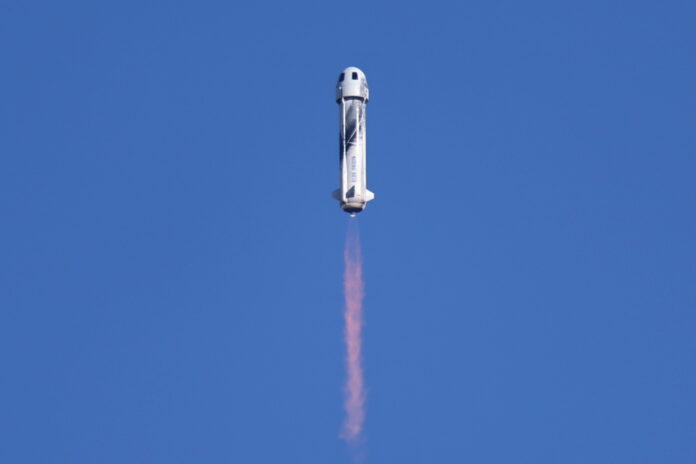(Washington) Space company Blue Origin said on Friday it wanted to resume rocket flights “soon” after the conclusion of an investigation into the causes of an accident that occurred last year during a takeoff.
Blue Origin’s New Shepard rocket is notably used by Jeff Bezos’ company for space tourism flights from Texas, but at the time of the accident in September 2022, it was only carrying science experiments on board.
The rocket is made up of a single stage and, at its top, the capsule carrying its cargo.
During the mission named NS-23, the main stage had suffered an anomaly, triggering the automatic ejection system of the capsule, which had fallen to the ground slowed down by its parachutes.
The main stage had “hit the ground,” Blue Origin said at the time, instead of landing in a controlled manner for re-use as usual.
An investigation has since been conducted, under the supervision of the American air regulator (FAA), to determine the reason for this accident.
The anomaly was caused by a “thermostructural” problem with an engine’s nozzle (the duct through which combustion gases are ejected), which resulted in “misalignment” at the time of thrust, Blue Origin said Friday.
Specifically, this engine component was exposed to higher temperatures than expected, the investigation concluded. “Design changes” to several elements should prevent this problem in the future, the company explained.
Cargo transported in September 2022 “landed safely” following the anomaly, with an ejection system working “as intended”, the company said.
Blue Origin said it wants to resume flights “soon” by restarting the NS-23 mission, with the same science cargo recovered intact.
Blue Origin has sent 32 people into space since July 2021, when its boss Jeff Bezos, founder of Amazon, took part in the first flight. Space tourists stay only a few minutes in weightlessness.
The company Virgin Galactic is also positioned in this niche of short space tourism trips, but it has not flown anyone since July 2021.


















